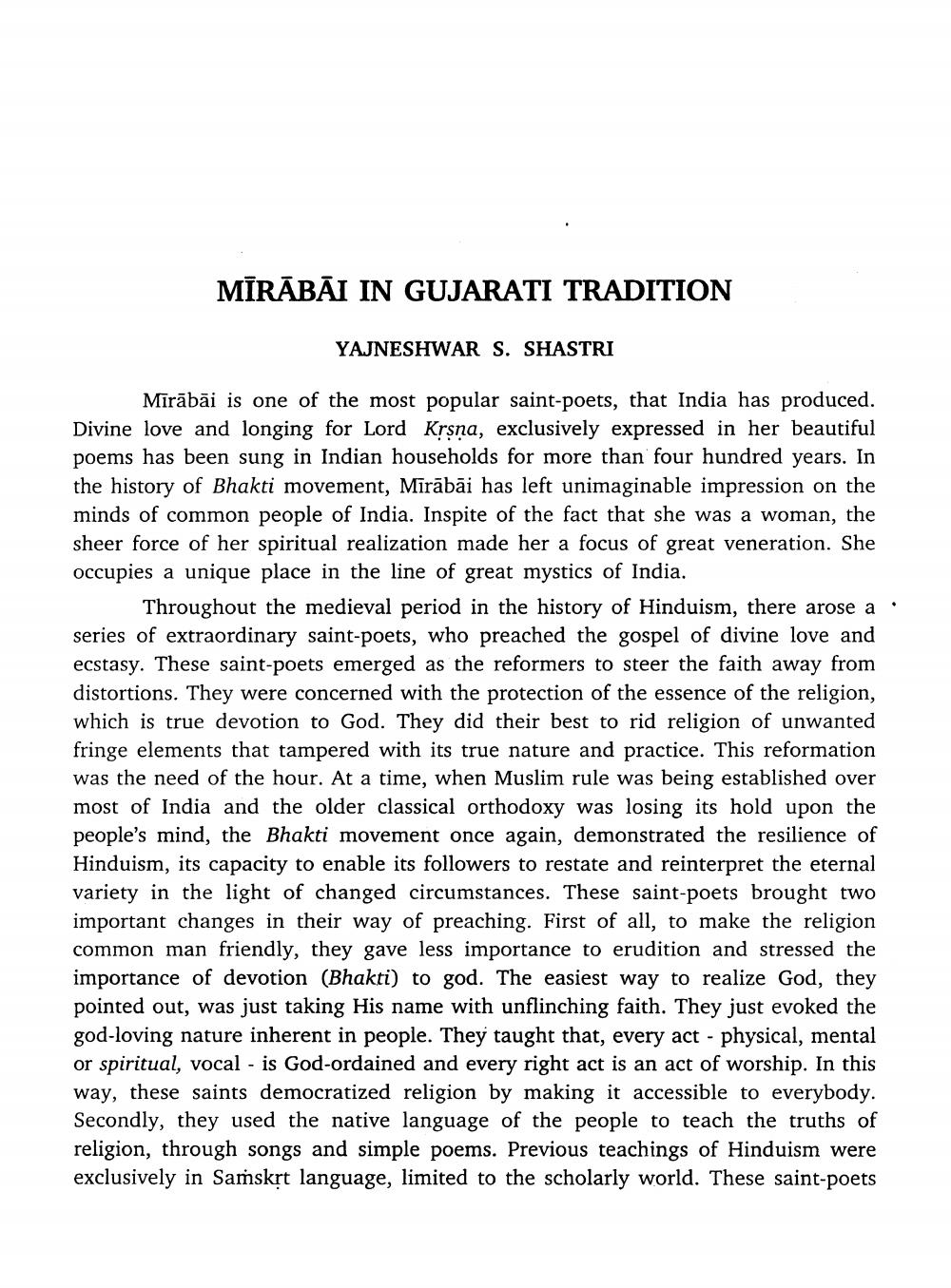________________
MĪRĀBĀI IN GUJARATI TRADITION
YAJNESHWAR S. SHASTRI
Mīrābāi is one of the most popular saint-poets, that India has produced. Divine love and longing for Lord Kṛṣṇa, exclusively expressed in her beautiful poems has been sung in Indian households for more than four hundred years. In the history of Bhakti movement, Mīrābāi has left unimaginable impression on the minds of common people of India. Inspite of the fact that she was a woman, the sheer force of her spiritual realization made her a focus of great veneration. She occupies a unique place in the line of great mystics of India.
Throughout the medieval period in the history of Hinduism, there arose a series of extraordinary saint-poets, who preached the gospel of divine love and ecstasy. These saint-poets emerged as the reformers to steer the faith away from distortions. They were concerned with the protection of the essence of the religion, which is true devotion to God. They did their best to rid religion of unwanted fringe elements that tampered with its true nature and practice. This reformation was the need of the hour. At a time, when Muslim rule was being established over most of India and the older classical orthodoxy was losing its hold upon the people's mind, the Bhakti movement once again, demonstrated the resilience of Hinduism, its capacity to enable its followers to restate and reinterpret the eternal variety in the light of changed circumstances. These saint-poets brought two important changes in their way of preaching. First of all, to make the religion common man friendly, they gave less importance to erudition and stressed the importance of devotion (Bhakti) to god. The easiest way to realize God, they pointed out, was just taking His name with unflinching faith. They just evoked the god-loving nature inherent in people. They taught that, every act - physical, mental or spiritual, vocal - is God-ordained and every right act is an act of worship. In this way, these saints democratized religion by making it accessible to everybody. Secondly, they used the native language of the people to teach the truths of religion, through songs and simple poems. Previous teachings of Hinduism were exclusively in Samskṛt language, limited to the scholarly world. These saint-poets
•




